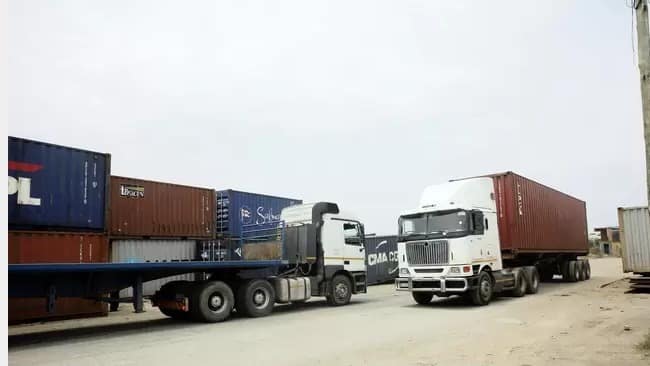
For small trucking companies, missing just a week’s work may mean failure to pay wages or inability to repay a loan amongst other expenses that help keep the business floating. Worse now with the Covid-19 pandemic which does not seem to slow down, the effects may result in serious consequences, closures being a very genuine threat.
In light of this, the SA government has come up with a bailout plan to help small businesses hardest hit by the coronavirus crisis.
Small business development minister Khumbudzo Ntshavheni on Thursday, made a commitment to help out small businesses to payout their business loans.
But to qualify, you will have to prove a direct link between your inability to service your business loan and the coronavirus outbreak.
For trucking companies, when manufacturing slows down and exports & imports are negatively affected it hits directly into the pocket
The funds will be coming from what Ntshavheni called the “Debt Relief Fund”.
Said Ntshavheni: “Government understands that SMMEs will be affected on two levels as businesses when the economy slows down and as suppliers of products and services during this period.
“To mitigate the impact during the expected economic slowdown, the department is finalising the SMME support intervention comprising of the Debt Relief Fund and Business Growth or Resilience Facility.
“The Debt Relief Fund is aimed at providing relief on existing debts and repayments, to assist SMMEs during the period of the Covid-19 state of disaster.
“For SMMEs to be eligible for assistance under the Debt Relief Fund, the applicant must demonstrate a direct link of the impact or potential impact of Covid-19 on the business operations.”
Over and above this intervention, Ntshavheni said she had instructed all provincial economic development MECs to assist in ensuring that as many small businesses as possible receive support.
But to stop chance takers who will see this as an opportunity to loot, the ministry has set up a centralised registration system (www.smmesa.gov.za) where all those in need of financial aid will register and be screened.
“The department’s insistence on the use of the SMMESA database is based on the need to track, monitor and strengthen the impact of business development support to SMMEs by both government and the private sector, during this period and beyond.
“In future, the database will also be used to apply for both financial and non-financial support, access information about business opportunities and market access support,” she said.
The Business Growth or Resilience Facility, said Ntshavheni, was meant to “enable continued participation of SMMEs in supply value-chains, in particular those who manufacture (locally) or supply various products that are in demand, emanating from the current shortages due to Covid-19 pandemic”.
“This facility will offer working capital, stock, bridging finance, order finance and equipment finance and the amount required will be based on the funding needs of the business.”






